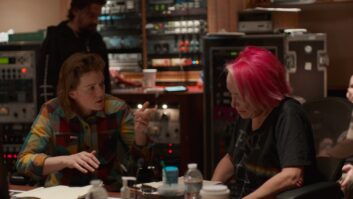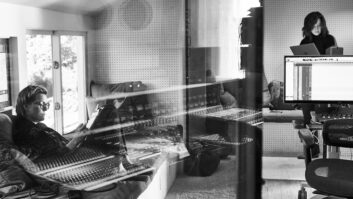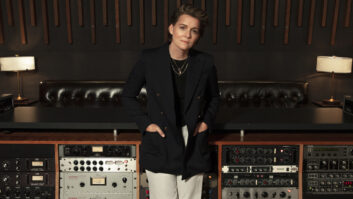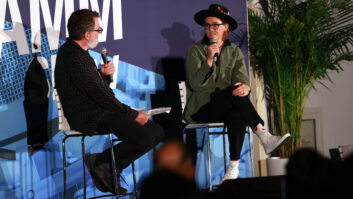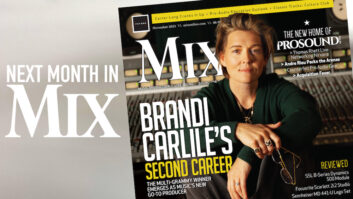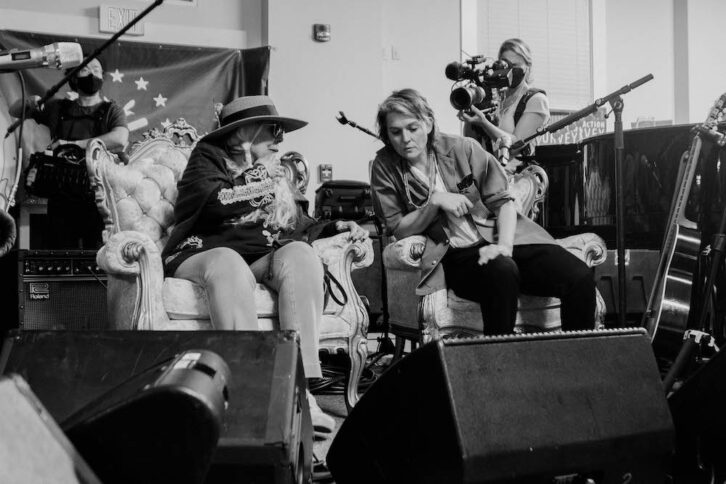
In Part 1 of our interview, Carlile spoke about some of the great producers she’s worked with, while in Part 2, she shared her thoughts for how to draw the best performances out of an artist. Now, in Part 3, she explains how and why she produced landmark new records by legends Joni Mitchell and Tanya Tucker.
Let’s talk about Joni Mitchell. Newport was an incredibly historic moment. What did you see as your most important role in facilitating and documenting that performance?
Before we knew it was going to be an album, when it was just a moment that we hoped would happen, the most important part of my job was creating an environment where Joni would have fun. I was desperately nervous that she would get on stage and not have fun and say, “That’s why I don’t do this anymore.” That something would go wrong, that there would be some sort of debilitating feedback, or that the cops would come unplug the P.A. because we went into overtime…just any number of things that could go wrong, and believe me, I thought of them. I was excited for the people in the audience, but my number-one priority was Joni.
When I saw around that third or fourth song that she was having fun and that she was singing in ways that she had never sung in front of any of us before, I went into a total state of euphoria. I knew then that I had done my job and that Joni was having fun.
Behind the scenes, of course, we had set up to record that historic set, and there are so many people who contributed to that being executed perfectly.
When the show was over and we were mining through those treasures, that’s when it got really interesting and really technical. That’s when Joni got really involved, and that was the whole second phase of Newport that was a really beautiful surprise.
Did translating that to the recording come naturally?
A lot of it was sitting in on all the mixes with Brandon Bell. There were things about what Joni did in the show that were so improvised and out of the blue and surprising to us. We had been doing these jams in Joni’s living room, this sort of low-key, unofficial thing with margaritas and white wine, hanging around jamming and singing. A lot of us would be singing and playing songs to Joni, her own songs, and there were no microphones or anything, just stacks of paper, and she would join in when she would join in.
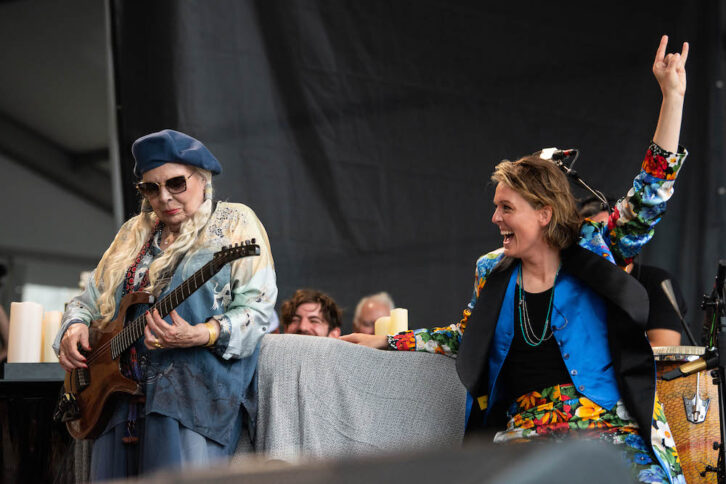
Newport was set up as that kind of vibe. We were going to be basically singing Joni’s songs back to Joni, and she would join in where she joined in. She joined in in a lot in ways that she’d never done before; she was pulling harmonies out of thin air that we’d never even heard, some that were even scary to sing to at first. We didn’t always react in real-time in ways that were album-worthy, so when I sat in on the mix, I got kind of a do-over.
Joni would chime in with a harmony, and it’d be kind of quiet and off-mic. Because I got a chance to get into the surgery of constructing that album, I could bring that harmony up and bring myself up or bring Taylor [Goldsmith] or Jess [Wolfe] or Holly [Laessig] down so that the listener could hear what Joni did quietly off-mic.
There were a bunch of different situations like that, where I could bring those tentative moments into the limelight and pull improvisation out of the background, where there’s no way the live mixer could do it at Newport because nobody was expecting any of it.
Then taking it to Joni for the first time and playing it for her and getting her notes and her opinions on the mixes, her creation of the sequence, it was one of the insane honors of my life to sit next to her and take orders. My role as a producer with Joni Mitchell was that she doesn’t need one, she is one; she’s more like the closest thing I’ve ever had to a boss.
Working with Tanya Tucker, how was your collaboration on the second record different than it was the first time around?
The whole first album was just helping her put herself in touch with herself and showing her that that was enough. The second album was about connecting her to her own words and her own life in some interesting ways, because obviously we wrote the first album around Tanya Tucker, as a biography. I thought what would be more interesting than a biography was an autobiography.
Because Tanya is an absolute wordsmith and orator, it would only lead one to believe that she’d be an amazing writer, too, but she just says over and over again, “I’m not a writer, I’m not a writer!” I just started writing down hilarious shit that she says, showing her that, “You are a writer—not just hilarious, but profound!”
We started writing songs together, Shooter too, based on what Tanya said and what she thinks in her daily life. One of the things that sets Sweet Western Sound apart from While I’m Living is that most of this album, these are Tanya’s words, and because these are her lyrics and her words, we put more emphasis on the vocal and where the vocal lives in the album. It sounds much more like a vocalist album; the vocals stand apart from the band in big, godly ways.
Tanya was saying amazing things, talking about how since she’s the youngest country star of the country legends that we all know. She was like the baby of the Grand Ole Opry, and they were all worried about her bedtime, putting their arms around her when she was like 13 years old.
Because she’s of their ilk, because she’s with the legends but she’s so much younger than them, she’s seeing them all pass away. One night, when Billy Joe Shaver died, I met her in Nashville for dinner and I said, “I’m sorry that he passed away,” and she explained to me, “I’ve always known it’s going to be this way, so I’m ready, ready as I’ll never be,” then smiled at me.
So I wrote a song based on that line and based on the experience that Tanya is having watching her friends “get their wings,” as she puts it. For that reason, I love While I’m Living, but I think Sweet Western Sound is so profound
